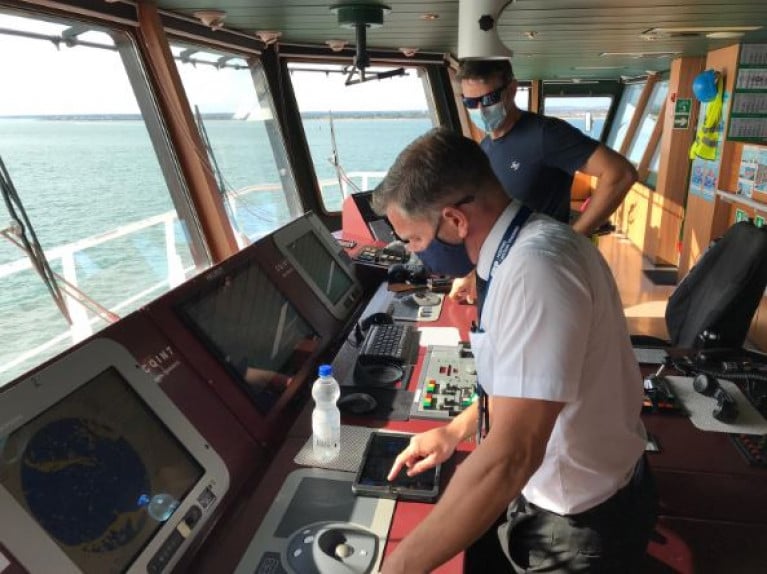Displaying items by tag: 1st in Europe
The first ports group in Europe, Associated British Ports (ABP) is to use a new digital Master Pilot Exchange programme developed by Ports of Auckland, eMPX, simplifying the current process.
Already in use at ports in Australia and New Zealand, ABP’s 21 ports across the UK (among them Ayr, Barrow and Cardiff) will become the first European-based ports to roll out and use the software. After a successful trial completed in 2021, eMPX will assist all ABP marine pilots in helping to guide ships of all shapes and sizes into safe harbours.
eMPX, the new global standard for master-pilot exchange, is designed with cutting-edge technology, and provides pilots with an entirely digital experience, eliminating the need for paper-based processes.
Using an iPad, pilots will be able to plan ahead of a vessel’s arrival at port, before sharing the plans and port data with ships’ masters, with the ability to update the plan if a ship is delayed. Data can also be stored, with all data then stored in the cloud, readily available for future reference.
The use of eMPX at ABP’s ports is part of its long-term vision for digitalisation. Already in use amongst marine pilots in Southampton, ABP plans to roll out eMPX with pilots in its other 20 ports by the end of 2022.
























































